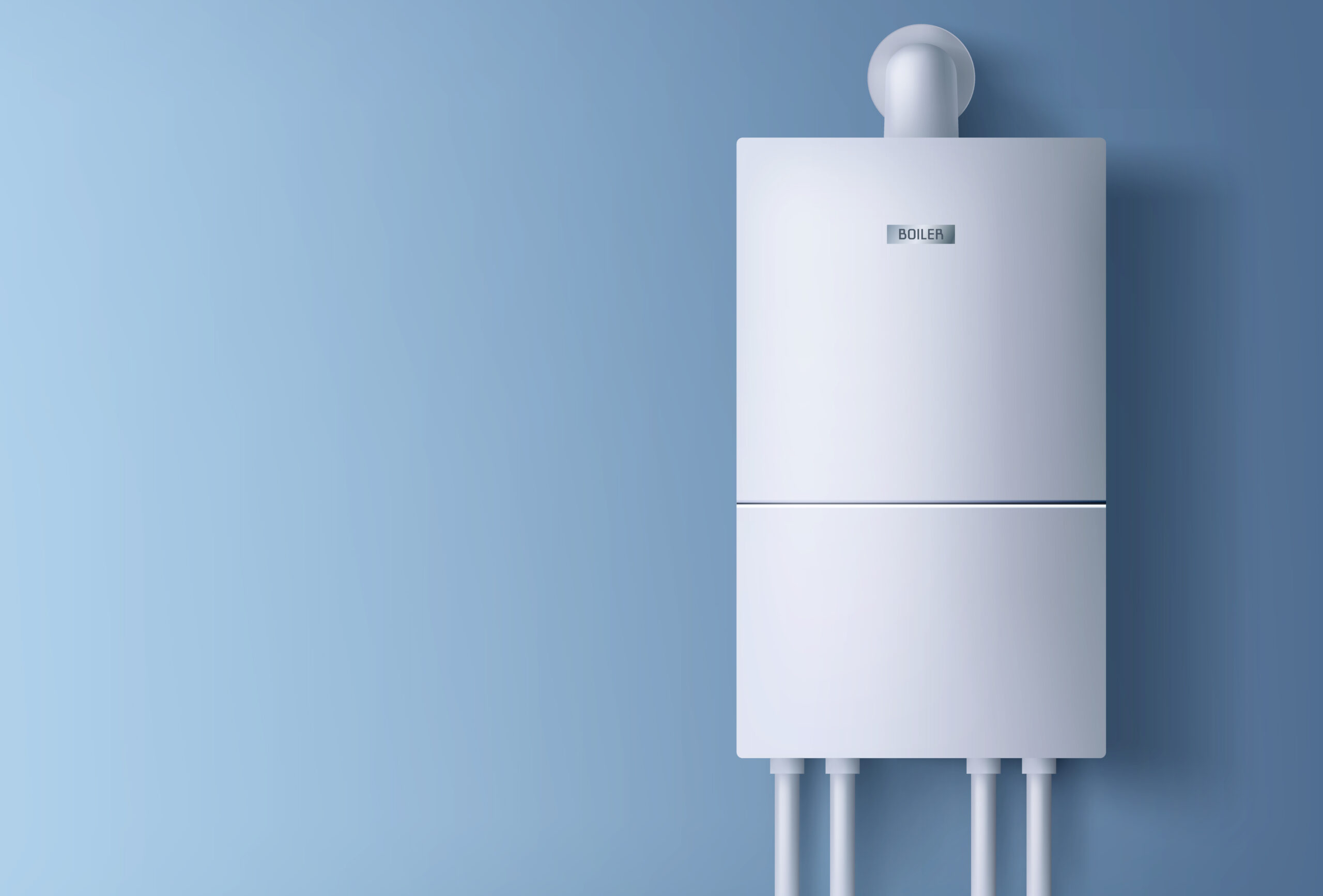Are you tired of running out of hot water during a shower or while doing the dishes? It might be time to consider a tankless water heater installation. These energy-efficient systems provide hot water on demand, without the need for a bulky tank. But with so many options available, it can be overwhelming to choose the right one for your home.
In this article, we’ll explore the three main types of tankless water heater installations: whole-house, point-of-use, and hybrid. We’ll discuss the benefits of each, and help you determine which option is best for your specific needs. Say goodbye to cold showers and hello to endless hot water with a tankless water heater installation.
Whole-House Tankless Water Heater Installation
If you want endless hot showers and lower energy bills, you should definitely consider going tankless with your whole-house water heating solution. Unlike traditional water heaters, tankless water heaters heat water on demand, which means there is no standby heat loss. This translates to significant energy savings, especially if you have a large household that consumes a lot of hot water.
Whole-house tankless water heater installation involves replacing your existing water heater with a new tankless unit that can handle the hot water demands of your entire household. This requires professional installation as the unit needs to be properly sized and installed to ensure optimal performance. While the upfront cost of a whole-house tankless water heater may be higher than a traditional water heater, the long-term savings in energy costs and the convenience of endless hot water make it a worthwhile investment.
Point-of-Use Tankless Water Heater Installation
Looking for an efficient way to heat water at the location where you need it most? Consider installing a point-of-use unit. These tankless water heaters are designed to provide hot water for a single fixture, such as a sink or shower. They are ideal for homes with limited space or where the hot water demand is low.
Point-of-use tankless water heaters can be installed in various locations, such as under the sink, in a closet, or on the wall. They are available in electric or gas models, and their size and capacity vary depending on the manufacturer and the intended use. Installation is relatively easy and can be done by a professional plumber or a skilled DIYer. Once installed, the unit heats water on demand, eliminating the need for a storage tank and reducing energy waste. Overall, point-of-use tankless water heaters are a cost-effective and convenient option for providing hot water exactly where you need it.
Hybrid Tankless Water Heater Installation
You’re in luck if you’re looking for an energy-efficient way to heat water for your home, because the current section covers hybrid units that are designed to save you money in the long run. A hybrid tankless water heater uses both electricity and gas to heat water, making it more versatile than a traditional tankless water heater. This type of unit is ideal for larger households with high hot water demands, as it can provide a constant supply of hot water without sacrificing energy efficiency.
Installation of a hybrid tankless water heater can be more complex than a point-of-use unit, as it requires both electrical and gas connections. However, many manufacturers offer professional installation services to ensure that the unit is installed safely and correctly. It’s important to note that a hybrid unit may have a higher upfront cost than a traditional tankless water heater, but the long-term energy savings can make up for the initial investment. Overall, a hybrid tankless water heater is a great option for those looking to save money on their energy bills while still having a reliable source of hot water.
Benefits of Whole-House, Point-of-Use, and Hybrid Systems
You’ll be excited to learn about the benefits of the different systems available for heating water in your home, including whole-house, point-of-use, and hybrid units. Whole-house systems are great for large families or homes with high hot water usage. These units can provide hot water to multiple fixtures at once, ensuring that everyone in the household can take a shower or wash dishes without running out of hot water.
Point-of-use systems, on the other hand, are ideal for smaller homes or homes with low hot water usage. These units are installed directly at the fixture, such as a sink or shower, and provide hot water on-demand. This means that you don’t have to wait for the water to heat up, saving you time and money on your energy bills. Finally, hybrid systems combine the best of both worlds, providing hot water to the entire home while also offering on-demand hot water at specific fixtures. This can help reduce energy costs while still providing ample hot water for the household.
Choosing the Best Tankless Water Heater Installation Option for Your Home
If you want to make sure your home always has hot water available whenever you need it, there are a few things to consider when choosing the best way to install your new system. First, you should think about the size of your home and the number of people who will be using hot water on a regular basis. This will help you determine whether a whole-house or point-of-use system is the best choice for you.
A whole-house system is ideal for larger homes with multiple bathrooms and a high demand for hot water. These systems can be installed in a central location and will provide hot water to all the fixtures in your home. On the other hand, a point-of-use system is designed to provide hot water to a specific fixture, such as a shower or sink. This option is best for smaller homes or for areas where hot water is only needed in one location. Hybrid systems are also available and can be a good option for homeowners who want the benefits of both whole-house and point-of-use systems.
Frequently Asked Questions
How long does it take to install a tankless water heater?
Installing a tankless water heater typically takes around four to eight hours, depending on the complexity of the installation and the size of the unit. Professional installation is recommended, as it involves electrical and gas connections that require specialized knowledge and tools. While it may be tempting to attempt a DIY installation, it is important to prioritize safety and efficiency. A licensed plumber or electrician can ensure that the installation is up to code and functioning properly. It is also important to schedule the installation when you have enough time and flexibility in your schedule to accommodate any unforeseen complications.
What kind of maintenance does a tankless water heater require?
Tankless water heaters require minimal maintenance compared to traditional tank-style water heaters. One of the most important tasks is regular descaling to remove mineral buildup, which can affect the heater’s efficiency and longevity. This can typically be done by running a vinegar solution through the unit. Additionally, it’s important to clean the air intake filter periodically to ensure proper ventilation and prevent blockages. Other than that, tankless water heaters generally require little upkeep, making them a convenient and low-maintenance choice for homeowners looking to upgrade their water heating system.
Can a tankless water heater be used for both hot water and heating?
A tankless water heater can indeed be used for both hot water and heating. In fact, many homeowners opt for a tankless system precisely because of its versatility. Unlike traditional hot water heaters, a tankless system can provide hot water on demand, which means you can use it for everything from washing dishes to taking a shower to heating your home. Plus, because it doesn’t rely on a storage tank, it can save you money and energy in the long run. Of course, if you’re interested in using your tankless system for heating as well as hot water, you’ll want to make sure you choose a model that’s up to the task. Some tankless systems are designed specifically for heating, while others are better suited for hot water only. So be sure to do your research and choose a system that meets your needs.
Are there any tax incentives or rebates available for installing a tankless water heater?
Tax incentives and rebates are available for homeowners who install a tankless water heater. The federal government offers a tax credit of up to $300 for energy-efficient home improvements, including tankless water heaters. Some states and utility companies also offer rebates or incentives for installing energy-efficient appliances. Homeowners should check with their local utility company or state energy office to see what incentives are available in their area. Switching to a tankless water heater can not only save homeowners money on their energy bills, but it can also provide additional benefits such as longer lifespan and more space-saving.
How much does it cost to replace a traditional water heater with a tankless one?
Replacing a traditional water heater with a tankless one can cost anywhere from $1,000 to $3,000, depending on the size of the unit and the complexity of the installation. This may seem like a significant investment, but it’s important to consider the long-term savings in energy costs and the extended lifespan of a tankless unit. Additionally, the added benefit of having a more compact and efficient system can free up space in your home. It’s important to consult with a licensed professional to determine the best option for your specific needs and to ensure proper installation.
Conclusion
In conclusion, there are several options when it comes to tankless water heater installation, each with its own benefits. Whole-house systems provide hot water to the entire home, while point-of-use systems are ideal for specific areas like bathrooms and kitchens. Hybrid systems offer the best of both worlds, combining the efficiency of tankless technology with the storage capacity of a traditional tank.
When choosing the best option for your home, consider factors such as household size, hot water usage, and budget. Consulting with a professional plumber can also help you make an informed decision. With the right tankless water heater installation, you can enjoy the convenience and energy efficiency of endless hot water.





